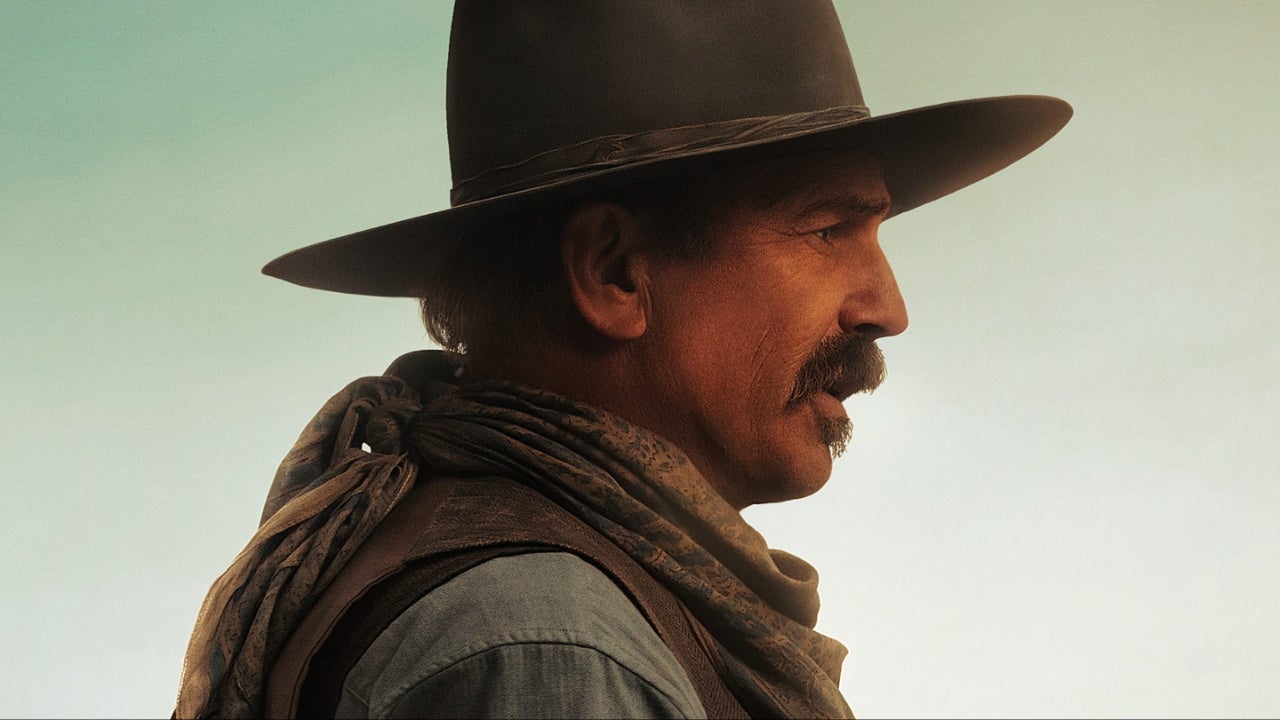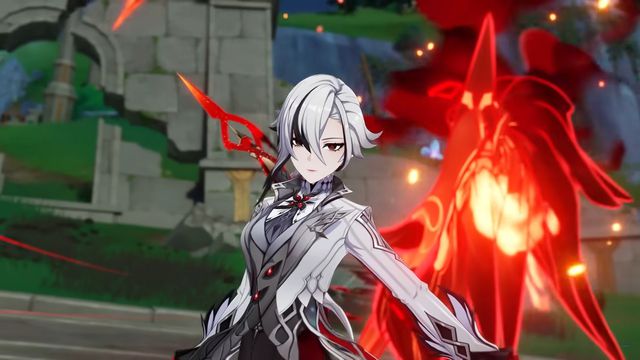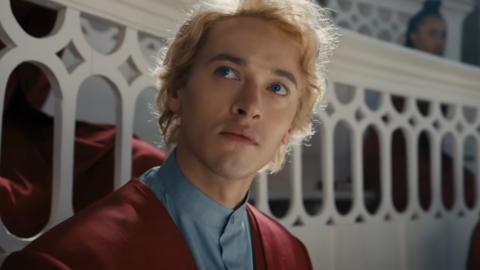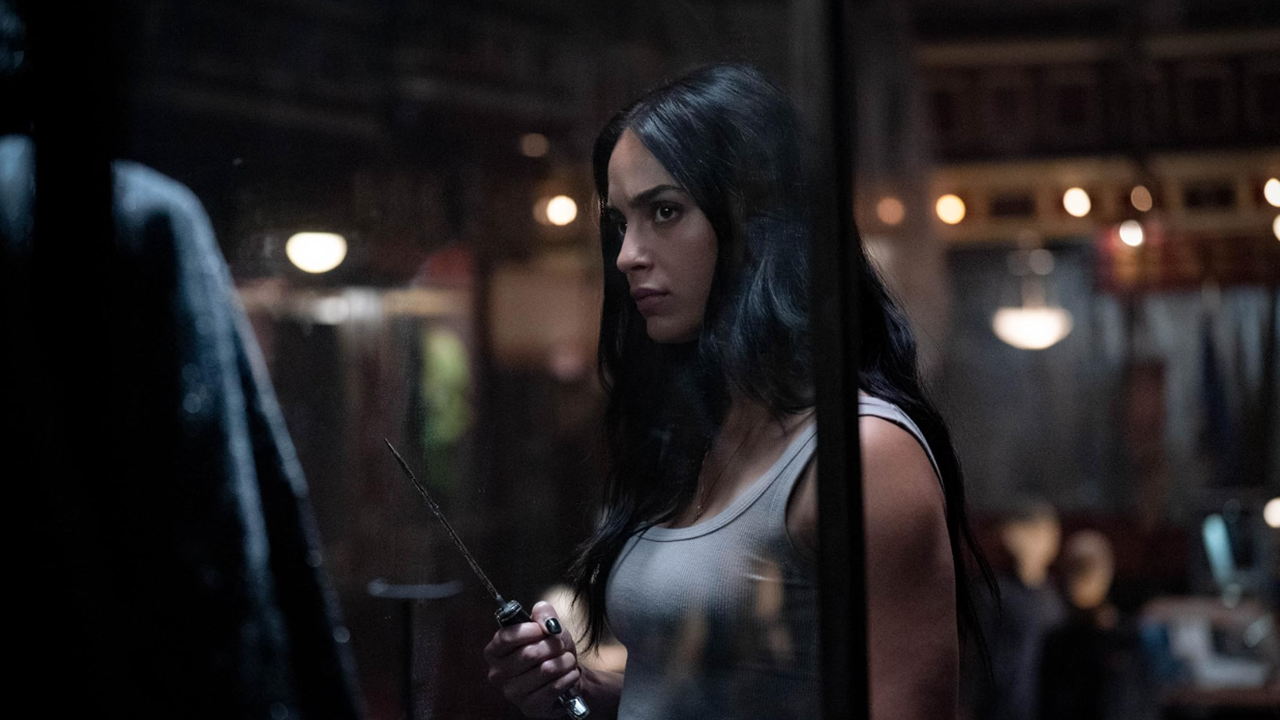Horizon: An American Saga – Chapter 1 opens in theaters Friday, June 28. This review is based on a screening at the 2024 Cannes Film Festival.
Horizon: An American Saga is the first of four planned Western epics by Kevin Costner. Only two of them have been shot and scheduled for release, and the fate of the remaining entries seems uncertain. In case that sounds like Zack Snyder's ill-conceived Rebel Moon project, the comparison is apt. Costner's overarching plan far supersedes anything that ends up on screen, and at a languid 3 hours in length, the first chapter is a major misfire.
Set during the lead up to the American Civil War, Horizon attempts to recreate the feel and enormous scale of classic Hollywood Westerns. It performs a fitting visual impression in some regards, but right from the start, the Yellowstone star and Dances with Wolves director seems intent on both reviving and refuting the genre, a tension that isn't so much reconciled (or even wrestled with) as it is simply recognized in dialogue, while the images themselves remain nostalgic for cinematic eras past.
The story is spread across disparate subplots unfolding far apart, each with a colossal cast that does their level best to maintain interest as they never get any closer to meeting. A brief, but by no means comprehensive rundown of those plots and characters: In Wyoming, a peaceful makeshift town of white Christian families – a settlement named Horizon, sold to its residents as a new promised land – is attacked by a ruthless Apache tribe and their fanatical young leader, Pionsenay (Owen Crow Shoe). Elsewhere, in a frigid Montana mining town, the scheming Sykes brothers, Caleb (Jamie Campbell Bower) and Junior (Jon Beavers), are on a mission to track down their father's mistress, Ellen (Jena Malone), and retrieve their baby half-sibling. (It’s here where Costner makes his onscreen appearance as lone gunman Hayes Ellison.) Like clockwork, the two-hour mark reveals a third story, and a third set of characters in the form of a wagon train headed for Horizon and headed up by pioneer Matthew Van Weyden (Luke Wilson). At this point, it starts to feel like this material was better suited for an hour-long TV drama.
The siege of Horizon is a blazing sequence with all the melodrama of Titanic (and even some callbacks to its musical score), though it doesn't lay enough emotional foundation to fully click. There's a viciousness to the way Costner shoots the town's Native attackers, who indiscriminately slaughter white children, and while he attempts to eventually provide some level of dimension to these events, the images themselves are hard to shake, as a fixture typical of the Western genre.
It’s a particularly retrograde depiction, especially disappointing to see in a post-Killers of the Flower Moon world, and when Costner eventually tries to subvert it, his limited dramatic framing doesn't do Horizon any favors. Rather than a more complex humanity offered to his Native characters, his solution is simply more screen time without the necessary nuance. This results only in more close ups of the handful of Apache who silently, stoically disagree with Pionsenay and of their peers whose bloodthirst – despite attempts to explain the encroachment on their hunting grounds – remains their primary trait.
All the while, Costner maintains a wistfulness for westward expansion. The settlers of Horizon are mostly duped into buying land to which they have no legal or cultural rights, leading to the movie’s bloody hostilities. Among the town's survivors are Frances Kitteridge (Sienna Miller) and her daughter Elizabeth (Georgia MacPhail), who are rescued and looked after by kindly members of the Union Army like First Lt. Trent Gephardt (Sam Worthington) and Sgt. Major Riordan (Michael Rooker). Gephardt usurps the role of "hero" from the traditional cowboy, albeit in the most boring possible manner.
Informing the people of Horizon (and those of us in the audience) of their predicament, Gephardt speaks from a modern perspective about the rights of “the indigenous” – a more respectful term today, but one that feels anachronistic coming from a Union soldier on horseback. In the process, he inadvertently helps contextualize the brewing clash with Pionsenay as an inevitability caused by some unseen conman, rather than by racist policies and beliefs. In Horizon, the primary victim of encroachment on Native lands is fragile white innocence, as embodied by the romanticism with which Costner captures Frances and Elizabeth.
In attempting to correct the myths perpetuated by classic Westerns, Horizon creates one of its own, turning Manifest Destiny into a big ol' Manifest Oopsie. It's perhaps the most regressive of its half-formed apologia for the genre, and for American history. The movie is blinkered to the point of aesthetically reinforcing the racism it tries to correct, but that’s not its biggest flaw: that would be the boring and banal storytelling. It's a particularly talkative Western, despite the odd shootout here or there, and the occasional landscape shot reminiscent of How the West Was Won, courtesy of cinematographer J. Michael Muro. (Muro also shot Costner's more successfully revisionist Western, Open Range.) Its conversations often go in circles, gesturing towards the Civil War and Apache-settler skirmishes in scenes that go on far too long without revealing new bits of information or character, and they barely glance at the white supremacist notions at the heart of both conflicts.
Worse yet, the film has the gall to not even feature an actual conclusion to any of its stories, or even the less desirable option of a cliffhanger. (Will we ever be rid of this new “Part 1” movie scourge?) Instead, with its characters no closer to crossing paths, it ends with a literal trailer for what’s to come, teasing a darker second chapter that looks far more intriguing than anything in the preceding film. Horizon plays, in the process, like a massive “screw you” to anyone who has the temerity to spend 3 hours being lulled to sleep by Costner’s noxious cinematic nostalgia. It’s a movie that harkens back to a bygone past – and that’s where it ought to have been left.








